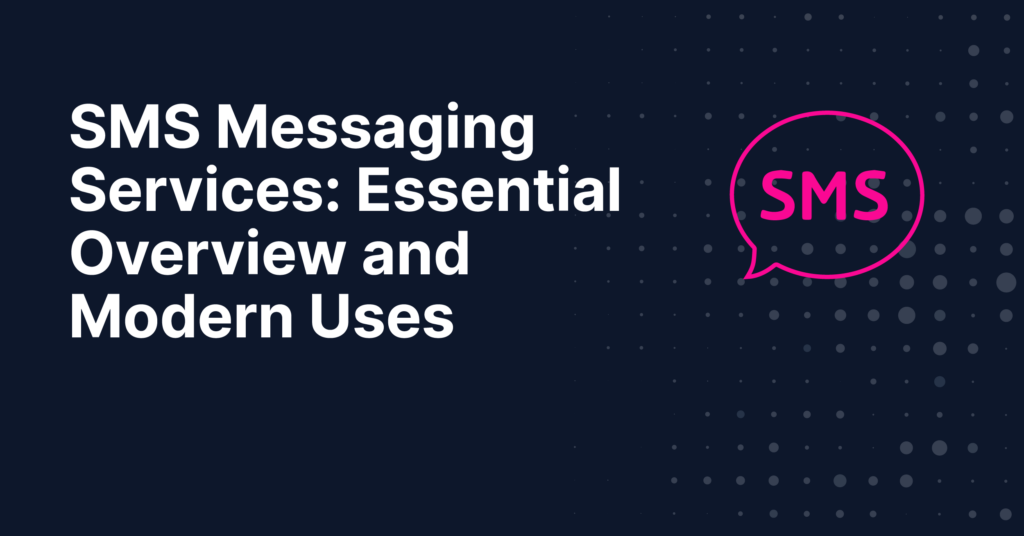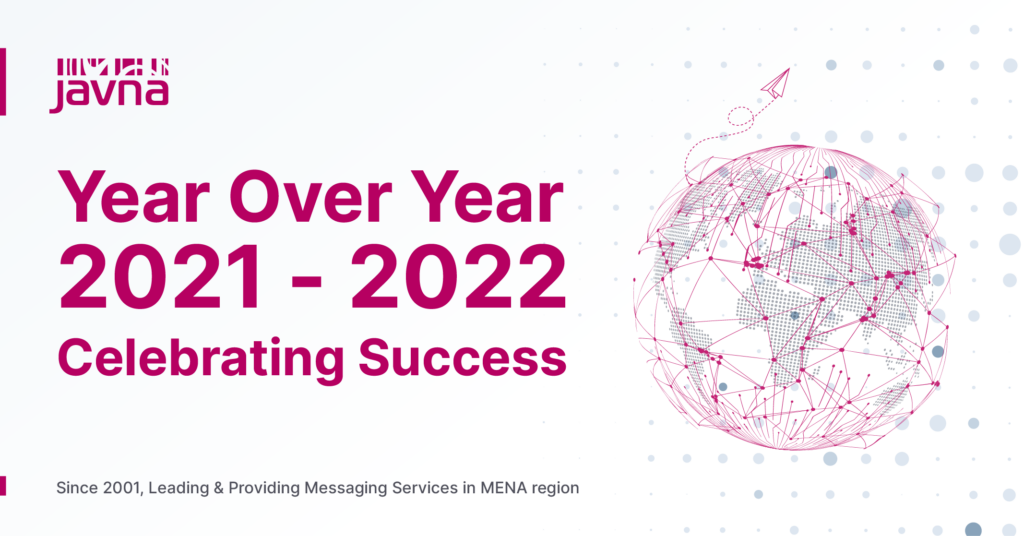SMS Messaging Services have revolutionized the way we communicate, blending simplicity with effectiveness. This article offers a detailed look into the world of SMS, exploring its core features, varied applications, and its pivotal role in shaping today’s communication landscape. From personal interactions to business communications, you’ll gain insights into how SMS remains a key player amidst evolving digital technologies.
Learn about the diverse uses of SMS services and understand their continued significance in our increasingly connected world.
1. What is SMS Messaging?
-
Definition and explanation of SMS (Short Message Service)
SMS, or Short Message Service, is a standardized communication protocol used in mobile networks to transmit short text messages between devices. It’s a form of digital communication that allows the sending of textual messages of up to 160 characters, including spaces and punctuation.
Originating from the Global System for Mobile Communications (GSM) standards, SMS was initially designed to fit into the existing signaling formats, making efficient use of network resources. It enables users to send and receive concise, text-based messages quickly and reliably over cellular networks.
The fundamental concept of SMS is its simplicity and efficiency. It does not require an internet connection, relying instead on the cellular network infrastructure, which contributes to its high reliability and widespread accessibility. SMS has become a ubiquitous feature in mobile communication, widely used for a variety of purposes, from personal messaging to commercial and informational uses.
In essence, SMS Messaging Services provide a straightforward and effective way of communication, easily accessible to almost anyone with a mobile device, making it a cornerstone in global telecommunications.
2. How SMS Messaging Works
-
Technical breakdown of how SMS messages are sent and received
SMS messages are transmitted via a complex yet efficient process within mobile networks. When a user sends an SMS, the message first travels to a Short Message Service Center (SMSC). The SMSC is responsible for storing and forwarding the message. It verifies the recipient’s availability and delivers the message to the intended mobile device. If the recipient’s phone is off or out of service range, the SMSC stores the message and attempts redelivery at a later time.
-
Overview of SMS Infrastructure in Mobile Networks
The infrastructure supporting SMS within mobile networks includes several key components:
-
- Mobile Devices: These are the starting and endpoint for SMS messages. Each device is equipped with the capability to compose, send, and receive SMS.
- Base Transceiver Stations (BTS): These stations facilitate communication between mobile devices and the network. They handle the transmission of signals to and from the devices.
- Mobile Switching Centers (MSC): MSCs are central components of the network, routing calls and messages between the cellular network and other networks, including the SMSC.
- Short Message Service Center (SMSC): As the central hub for SMS operations, the SMSC manages the storing, forwarding, and delivering of SMS messages.
This SMS infrastructure is designed for reliability and speed, ensuring messages are delivered efficiently even as users move between different network cells. Its straightforward yet robust nature is what makes SMS a dependable form of communication in various circumstances.
3. Key Features of SMS Services
-
A look at the fundamental features of SMS
SMS, or Short Message Service, is characterized by several fundamental features that define its functionality:
-
- Character Limits: One of the most defining attributes of SMS is its character limit. Each SMS message can contain up to 160 characters, including spaces and punctuation. This limit was established based on the original design and capacity of the network systems.
- Text-Only Format: SMS is strictly a text-based service. It allows the transmission of alphanumeric characters but does not support media formats such as images, videos, or audio clips.
These core features make SMS a concise and straightforward communication method, ideal for delivering brief messages efficiently across diverse mobile networks.
4. Uses and Applications of SMS
-
Exploration of various use cases for SMS in both personal and business contexts
SMS has a wide array of applications in both personal and business contexts, owing to its simplicity and high reach:
-
- Personal Communication: In personal use, SMS is a quick and reliable way to stay in touch, send reminders, or coordinate plans.
- Business Communication: Businesses use SMS for a variety of purposes:
-
-
- Marketing: SMS is a potent tool for marketing campaigns, offering direct communication with customers for promotions, special offers, or updates.
- Alerts and Notifications: Many companies and institutions use SMS to send time-sensitive alerts, appointment reminders, or service notifications.
- Two-Factor Authentication: For security purposes, SMS is commonly used to deliver one-time passwords or PINs as part of a two-factor authentication process.
-
These use cases highlight SMS’s versatility as a communication tool, capable of delivering concise information efficiently in various scenarios.
5. SMS vs. Other Messaging Services
-
Comparative analysis of SMS and other messaging platforms
This table concisely compares SMS with email and instant messaging apps, focusing on key aspects like reliability, speed, open rates, simplicity, and content limitations:
| Feature |
SMS |
Instant Messaging Apps |
|
| Reliability and Reach | High reliability, wide reach without internet | Requires internet, can be less immediate | Requires internet, user accounts |
| Speed of Delivery | Immediate delivery, often read within minutes | Delivery is fast, but checking varies | Instant delivery, requires internet access |
| Open Rates | High open rates, read quickly | Lower open rates, may remain unchecked | High, but dependent on app usage |
| Simplicity | Simple, no account needed, works on all phones | Requires email account, internet access | Requires app installation, internet access |
| Content Limitation | Text only, 160 characters limit | Supports multimedia, no character limit | Supports multimedia, varies by app |
These distinctions highlight SMS’s unique position as a quick, accessible, and effective tool for direct communication, especially in scenarios requiring immediate attention or broad reach without reliance on internet availability.
6. Challenges and Limitations
-
The limitations and potential challenges associated with SMS messaging
While SMS messaging is highly effective, it does face certain challenges and limitations, some of which are addressed by Javna’s robust security measures:
-
- Character Limitation: The 160-character limit per SMS can constrain the extent of information shared, making it less suitable for lengthy or detailed communication.
- Lack of Multimedia Support: SMS is text-only, lacking the ability to send multimedia content, which can limit its effectiveness in scenarios requiring visual communication.
- Spam and Security Concerns: SMS is prone to spam and phishing attacks. However, security in Javna is paramount. Our API uses end-to-end encryption and complies with strict data protection laws, ensuring that communications remain secure and confidential.
- Network Dependency: SMS relies on cellular network availability, which can vary in different locations, potentially affecting message delivery.
These challenges highlight the need for careful consideration of the communication context when choosing SMS as the medium, especially in scenarios requiring more than basic text exchanges.
7. Conclusion
-
Summarizing the key points
In summary, SMS messaging services remain a vital component in the communication landscape. Despite the advent of various advanced messaging technologies, the simplicity, reliability, and widespread reach of SMS continue to uphold its importance. Its ability to deliver messages swiftly and securely, even in areas with limited internet connectivity, underscores its enduring relevance.
From personal use to diverse business applications, SMS has proven its versatility, whether it’s facilitating urgent alerts, marketing communications, or secure two-factor authentication. Javna’s commitment to enhancing SMS security further strengthens its role in modern communication.
As we navigate through an ever-evolving digital world, SMS messaging services stand out as a reliable, accessible, and essential tool, continuing to adapt and serve our communication needs efficiently.
8. FAQs
-
What is SMS messaging for customer service?
SMS messaging for customer service is the use of Short Message Service (SMS) as a tool for businesses to communicate with customers. It involves sending text messages for support, updates, reminders, or feedback. This method is effective due to its wide reach, high open rates, and the convenience of quick, direct communication without needing internet access. SMS for customer service enhances customer experience through timely and efficient interactions.
-
Why use SMS messaging?
SMS messaging is used for its simplicity, high delivery reliability, and widespread reach. It enables quick and direct communication without needing Internet access, making it accessible to a broad audience. SMS is particularly effective for time-sensitive alerts, reminders, and concise information sharing, boasting high open and response rates compared to other forms of digital communication. This makes it a valuable tool for both personal use and business applications.
-
Why is SMS better?
SMS is considered better for certain applications due to its simplicity, reliability, and broad accessibility. It does not require an internet connection, ensuring reach even in areas with limited connectivity. SMS messages have high open rates, are delivered quickly, and are compatible with all types of mobile phones. This makes SMS ideal for urgent communications, reaching a wide audience, and ensuring important messages are read promptly.
-
Which SMS service is best?
The best SMS service often depends on specific needs and requirements. However, Javna’s SMS service stands out for its reliability, comprehensive features, and robust security. With Javna, users benefit from high delivery rates, global reach, and end-to-end encryption, making it a top choice for businesses and individuals seeking a dependable and secure SMS messaging solution.



